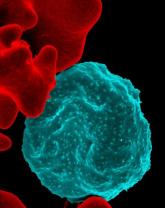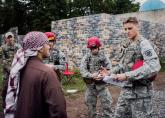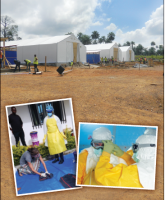Article

Can we eradicate malaria by 2050?
A Lancet Commission report details a series of modeled projections that could point the way.
David Brown is a Physician Assistant in the Urology Department at the VA Salt Lake City Health Care System and a Lieutenant Colonel in the Utah Air National Guard; Spencer Smith is an Emergency Department Physician at the University of Utah Hospital in Salt Lake City and a Major in the Utah Air National Guard. Mohamed Chibi is the Head of the Logistics Division at the Mohammed V Military Hospital in Rabat, Morocco and a Lieutenant Colonel in the Moroccan military. Nadia Hassani is a Health Care Supervisor in Emergency and Sports Medicine at the Ministry of Health in Rabat. Raymond Searles is an Assistant Professor of Nursing at Salt Lake Community College and a Captain in the Utah Air National Guard. Correspondence: David B. Brown (davidbillingsbrown@ gmail.com)
Author disclosures
The authors report no actual or potential conflicts of interest with regard to this article.
Disclaimer
The opinions expressed herein are those of the authors and do not necessarily reflect those of Federal Practitioner, Frontline Medical Communications Inc., the Utah National Guard, the US Government, or any of its agencies.
A health outreach program with a regional health professional training center in a relatively stable country within the African Union (AU) would be a step toward delivering health care to Morocco and interested AU members. Interested nations have been and will continue to be invited to train at the Moroccan center and return to their countries and start training programs. This idea was echoed by the World Bank in a 2015 loan proposal to Morocco, which suggested that addressing disparities in access to health care is a social justice issue, with other benefits such as increased productivity, employment, lower out-of-pocket expenditures, and promotion of good governance.17
In 2012, Buhi reported that a positive regard for authorities and healthier influences seemed to be a protective factor against radicalization. He also suggested a public health approach to understanding and preventing violent radicalization.19 The solutions are complex, especially in rural areas and in vulnerable nations common to Africa.
Medical training efforts by the US Department of Defense (DoD), Medical Readiness Training Institute (DMRT), and international health specialists working with the military and civilian entities in neighboring African countries have improved response to regional disasters. However, to address the broader issues, a more permanent, cooperative possible solution may begin with the establishment in Morocco of a regional education center for disaster preparedness and for health care providers (HCPs). This would serve as a training program for disaster first responders. Graduates of the program would receive additional training to become HCPs similar to physician assistant (PA) and nurse practitioner (NP) programs in the US. Morocco is uniquely positioned to accomplish this due to its location, political stability, and ties with other African nations.
The goal of the Moroccan regional education center (within the King Mohammed V Hospital) is to bring together global health experts and increase the intellectual infrastructure of not only Morocco, but also offer this training program to interested countries within the AU. Advancement of the regional education center will require legislative changes to expand prescriptive privileges and scope of practice within each country. The medical element of the SPP as presently constituted without the regional education center will continue its humanitarian goals, but the proposed creation of the regional education center will educate participants to serve the rural communities within each participating country. Eventually the entire educational program will be the responsibility of the Moroccan military and the AU participants. This will require reprioritizing resources from the provision of humanitarian health care services to an HCP education approach.
Deficits in disaster response capabilities have been identified by members of the Moroccan military with the assistance of the UTNG. The most glaring deficit identified was the disparity in training between military and civilian first responders. Thus, a training program was initiated by the Moroccan military and the UTNG that combined internationally recognized, durable, robust emergency training programs. These programs consisted of, but were not limited to, parts or entire programs of the following: basic disaster life support, advanced disaster life support, disaster casualty care, and advanced trauma life support. The goal of this training was to improve communication, reduce mortality, and create strike teams, which can quickly provide health care independent of a hospital during a disaster.

A Lancet Commission report details a series of modeled projections that could point the way.

The Center for Global Health Engagement is laying the groundwork for a future health care crisis at home and abroad.

The U.S. response to the Ebola epidemic resulted in many federal agencies assessing their ability to respond to global threats and improve the...
